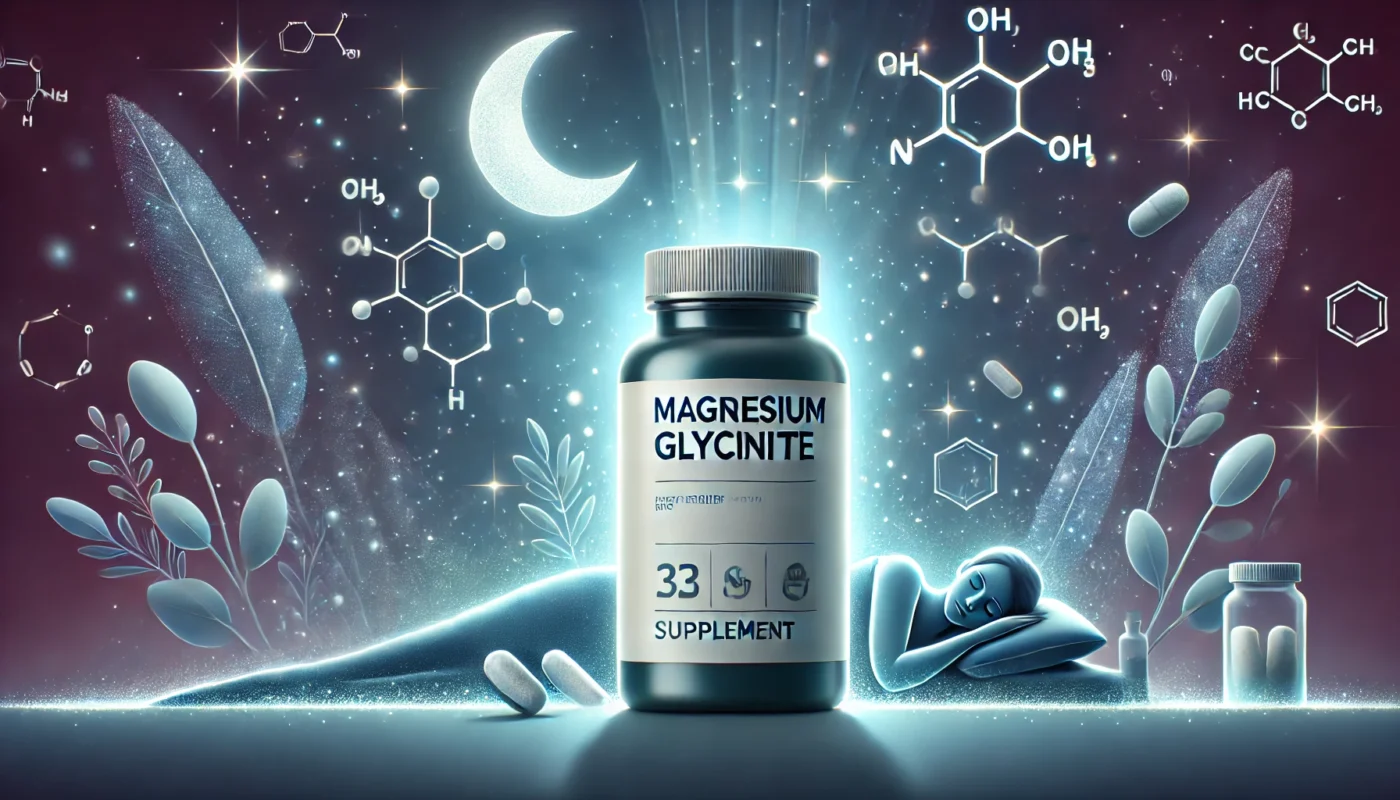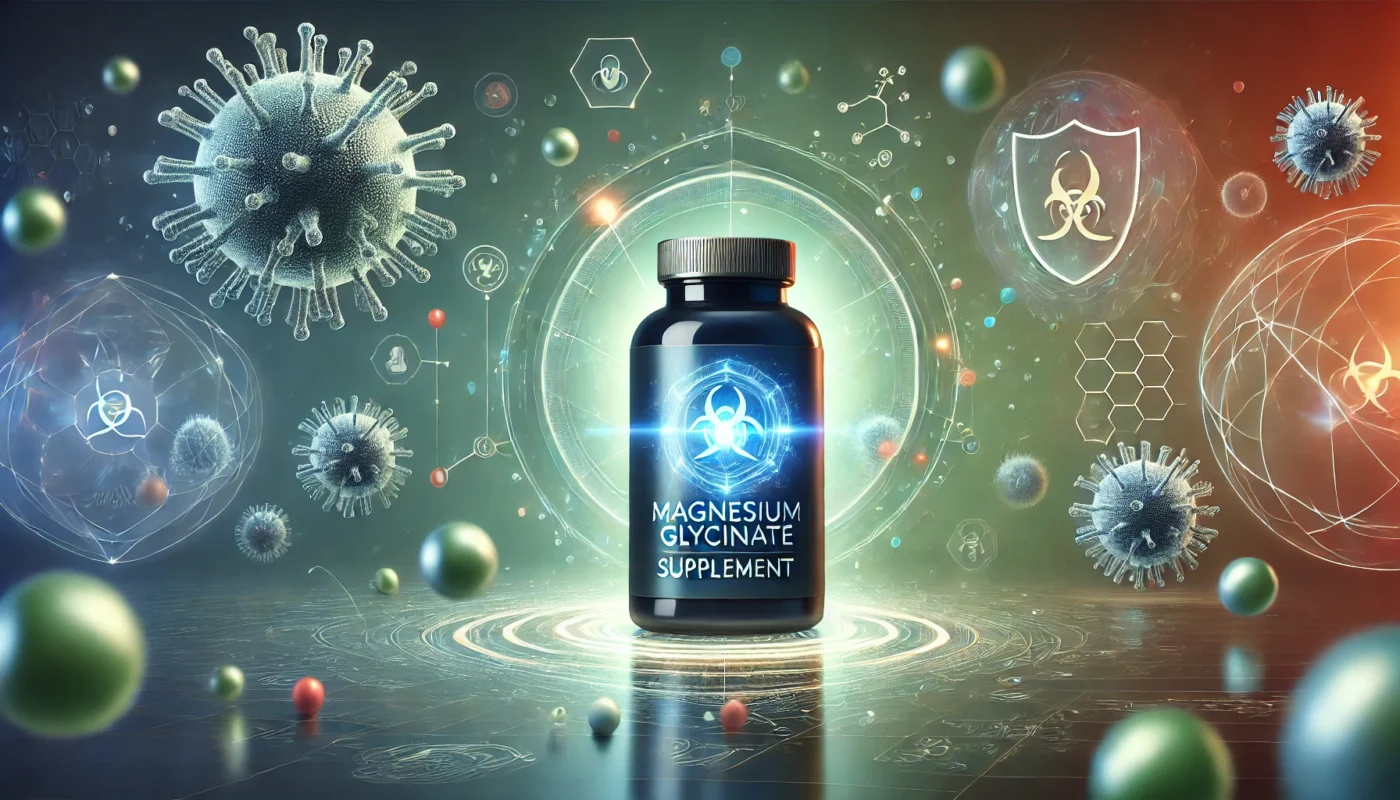As the world continues to navigate the aftermath of the COVID-19 pandemic, many individuals face persistent symptoms collectively known as Long COVID or post-acute sequelae of SARS-CoV-2 infection (PASC). These symptoms, which include fatigue, inflammation, brain fog, and muscle pain, significantly impact quality of life. In the search for therapeutic interventions, magnesium glycinate has emerged as a potential aid in recovery. This article explores the science behind magnesium glycinate benefits, examining its role in restoring energy, reducing inflammation, and promoting overall wellness for those recovering from Long COVID.
You May Also Like:
Magnesium Glycinate and Holistic Healing for Chronic Stress
Magnesium Glycinate as a Daily Supplement: Is It Right for Everyone?
Long COVID Relief: The Science Behind Magnesium Glycinate’s Benefits is an original (HSLHealing) article.
Understanding Long COVID: A Persistent Health Challenge
According to a study published in The Lancet (2021), approximately 10-20% of COVID-19 survivors experience Long COVID symptoms lasting weeks or months after the acute infection. These symptoms often include:
- Fatigue and exhaustion: Reported by over 50% of Long COVID patients (Alwan et al., 2021).
- Chronic inflammation: Linked to immune dysregulation caused by SARS-CoV-2 (Phetsouphanh et al., 2022).
- Neurological issues: Such as brain fog and headaches, possibly due to ongoing neuroinflammation (Taquet et al., 2021).
- Muscle pain and weakness: Likely stemming from mitochondrial dysfunction and inflammatory responses.
Traditional therapies focus on symptom management, but nutrient-based interventions like magnesium glycinate offer a promising complementary approach.

Why Magnesium Matters in Long COVID Recovery
Magnesium is a vital mineral involved in over 300 enzymatic processes in the human body, including energy production, muscle function, and immune regulation. For individuals with Long COVID, magnesium deficiency could exacerbate symptoms such as fatigue, inflammation, and poor neurological function.
The Problem of Magnesium Deficiency
Studies estimate that nearly 50% of Americans consume less magnesium than the recommended daily allowance (RDA) of 310–420 mg for adults (National Institutes of Health, 2022). This deficiency may be more pronounced in Long COVID patients due to the stress and immune challenges associated with the illness, which increase magnesium demand.
Magnesium Glycinate: A Bioavailable Solution
Magnesium glycinate is a chelated form of magnesium bound to glycine, an amino acid with calming properties. This form is highly bioavailable, meaning it is efficiently absorbed and utilized by the body without causing gastrointestinal side effects common in other magnesium supplements, such as magnesium oxide.
Key Benefits of Magnesium Glycinate
- Energy Restoration through Mitochondrial Support
- Fatigue, a hallmark of Long COVID, has been linked to mitochondrial dysfunction (Aucott et al., 2021). Magnesium is essential for the production of adenosine triphosphate (ATP), the body’s energy currency.
- A 2018 study published in Nutrients found that magnesium supplementation improved energy levels and physical performance in individuals with chronic fatigue.
- Anti-Inflammatory Effects
- Chronic inflammation is a significant driver of Long COVID symptoms. Magnesium plays a critical role in modulating inflammatory pathways by reducing pro-inflammatory cytokines like interleukin-6 (IL-6) and tumor necrosis factor-alpha (TNF-α).
- Research in The Journal of Inflammation Research (2020) demonstrated that magnesium supplementation reduced markers of inflammation in individuals with systemic inflammatory conditions.
- Neurological Benefits
- Brain fog and cognitive issues in Long COVID are often linked to oxidative stress and neuroinflammation. Magnesium glycinate’s glycine component enhances its ability to cross the blood-brain barrier, supporting neurological function.
- A 2021 review in Frontiers in Neuroscience highlighted magnesium’s role in stabilizing neuronal membranes and promoting neurotransmitter balance, which can alleviate symptoms like anxiety and poor focus.
- Improved Sleep Quality
- Poor sleep exacerbates fatigue and inflammation in Long COVID. Glycine in magnesium glycinate has calming effects on the nervous system, improving sleep quality.
- A randomized controlled trial (RCT) in The Journal of Sleep Research (2019) showed that magnesium glycinate supplementation significantly improved sleep efficiency and reduced insomnia severity.

Clinical Evidence Supporting Magnesium in Post-Viral Syndromes
Several clinical studies underscore the potential of magnesium supplementation for addressing symptoms associated with Long COVID:
- Post-Viral Fatigue and Magnesium Levels
- A 2020 study in Medicina found that individuals recovering from viral infections had significantly lower magnesium levels compared to healthy controls, suggesting a link between magnesium deficiency and persistent fatigue.
- Magnesium for Immune Health
- Research in Nutrients (2022) highlighted magnesium’s role in supporting immune resilience by enhancing T-cell activation and reducing chronic inflammation, mechanisms that are likely disrupted in Long COVID.
- Neuroprotective Effects
- A meta-analysis in Molecular Brain (2021) concluded that magnesium supplementation improves cognitive function and reduces neuroinflammatory markers, making it a promising intervention for post-COVID neurological symptoms.

Practical Tips for Magnesium Glycinate Supplementation
If you are considering magnesium glycinate as part of your Long COVID recovery plan, here are some key tips:
- Dosage Recommendations
- The typical dosage for magnesium glycinate is 200–400 mg per day, taken in divided doses. Start with a lower dose to assess tolerance.
- Timing
- Take magnesium glycinate in the evening to maximize its calming effects and support better sleep.
- Pairing with Other Nutrients
- Combine magnesium supplementation with a balanced diet rich in magnesium-containing foods, such as leafy greens, nuts, seeds, and whole grains, for optimal benefits.
- Consultation with a Healthcare Provider
- While magnesium glycinate is generally safe, individuals with kidney disease or those taking certain medications (e.g., diuretics) should consult a healthcare provider before starting supplementation.

A Holistic Approach to Recovery
Magnesium glycinate is not a standalone cure for Long COVID but rather a valuable tool in a comprehensive recovery strategy. Combining it with other lifestyle interventions—such as physical therapy, stress management, and a nutrient-rich diet—can enhance overall wellness and accelerate recovery.
Conclusion
Long COVID presents a complex and multifaceted health challenge, but magnesium glycinate offers hope for relief. By addressing key symptoms like fatigue, inflammation, and neurological dysfunction, this bioavailable form of magnesium can play a vital role in restoring energy and promoting overall wellness. Backed by clinical evidence and biological plausibility, magnesium glycinate is a scientifically grounded, accessible intervention for those navigating the road to recovery.

References
- Neurological and neuropsychiatric complications of COVID-19 in 153 patients: a UK-wide surveillance study. Retrieved from: https://www.sciencedirect.com/science/article/pii/S221503662030287X
- A narrative review on the role of magnesium in immune regulation, inflammation, infectious diseases, and cancer. Retrieved from: https://jhpn.biomedcentral.com/articles/10.1186/s41043-023-00423-0
- The Effects of Magnesium Supplementation on Subjective Anxiety and Stress-A Systematic Review. Retrieved from: https://pubmed.ncbi.nlm.nih.gov/28445426/
- Magnesium in the Central Nervous System. Retrieved from: https://www.ncbi.nlm.nih.gov/books/NBK507256/
- Magnesium in Aging, Health and Diseases. Retrieved from: https://www.mdpi.com/2072-6643/13/2/463
Important Note: The information contained in this article is for general informational purposes only, and should not be construed as health or medical advice, nor is it intended to diagnose, prevent, treat, or cure any disease or health condition. Before embarking on any diet, fitness regimen, or program of nutritional supplementation, it is advisable to consult your healthcare professional in order to determine its safety and probable efficacy in terms of your individual state of health. Regarding Nutritional Supplements Or Other Non-Prescription Health Products: If any nutritional supplements or other non-prescription health products are mentioned in the foregoing article, any claims or statements made about them have not been evaluated by the U.S. Food and Drug Administration, and such nutritional supplements or other health products are not intended to diagnose, treat, cure, or prevent any disease.

